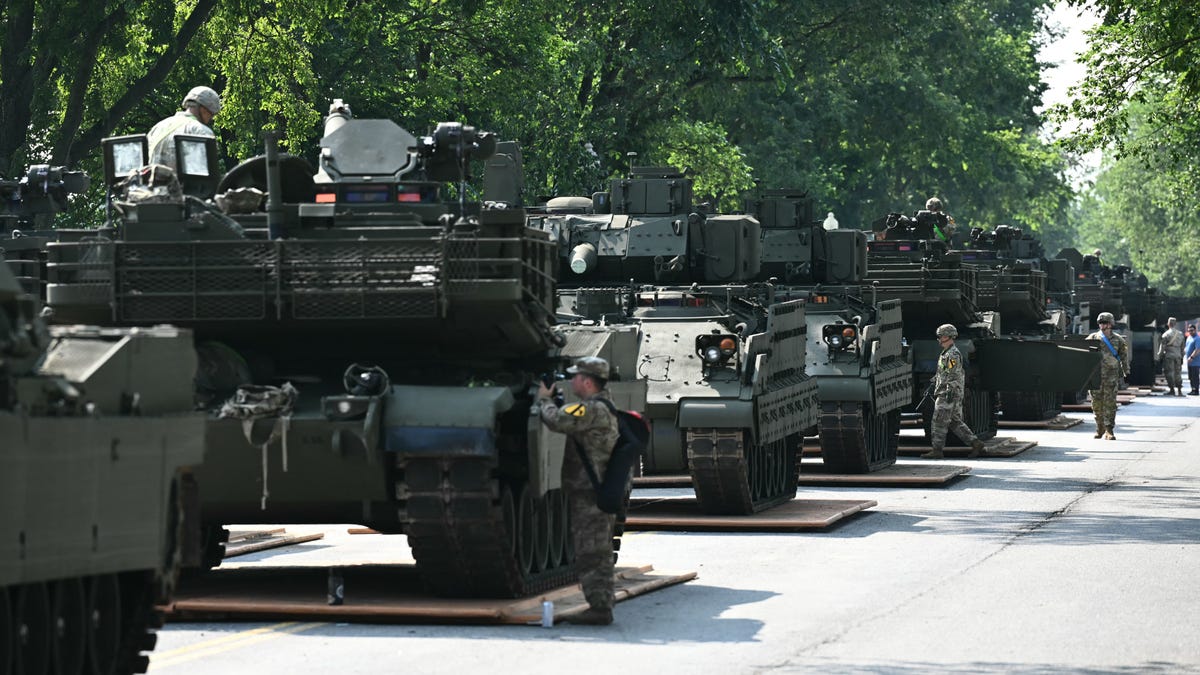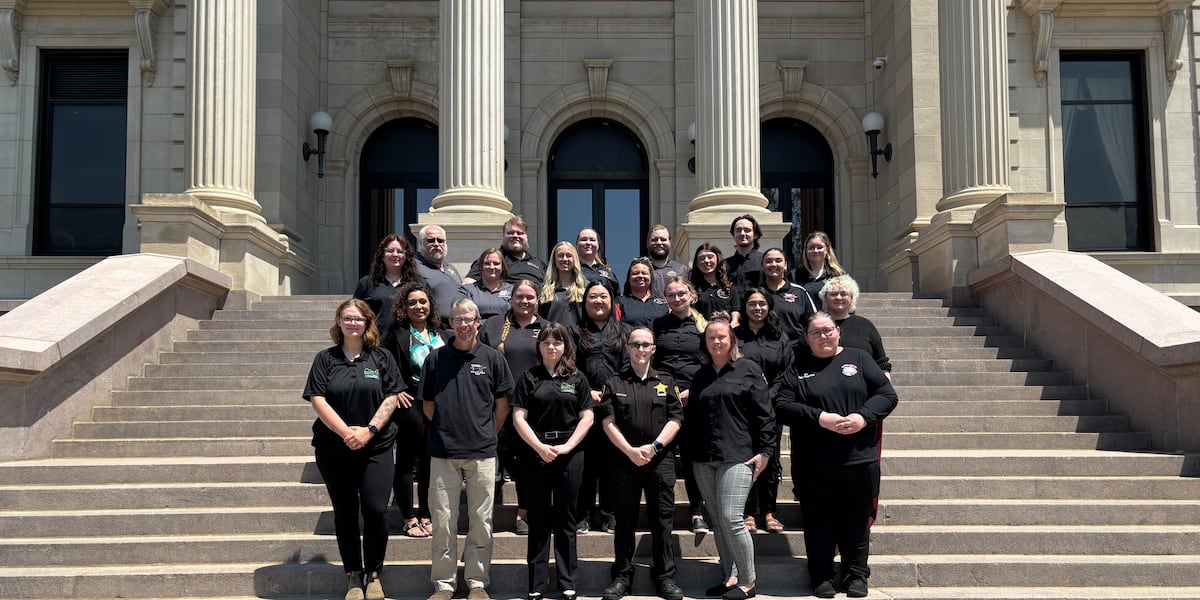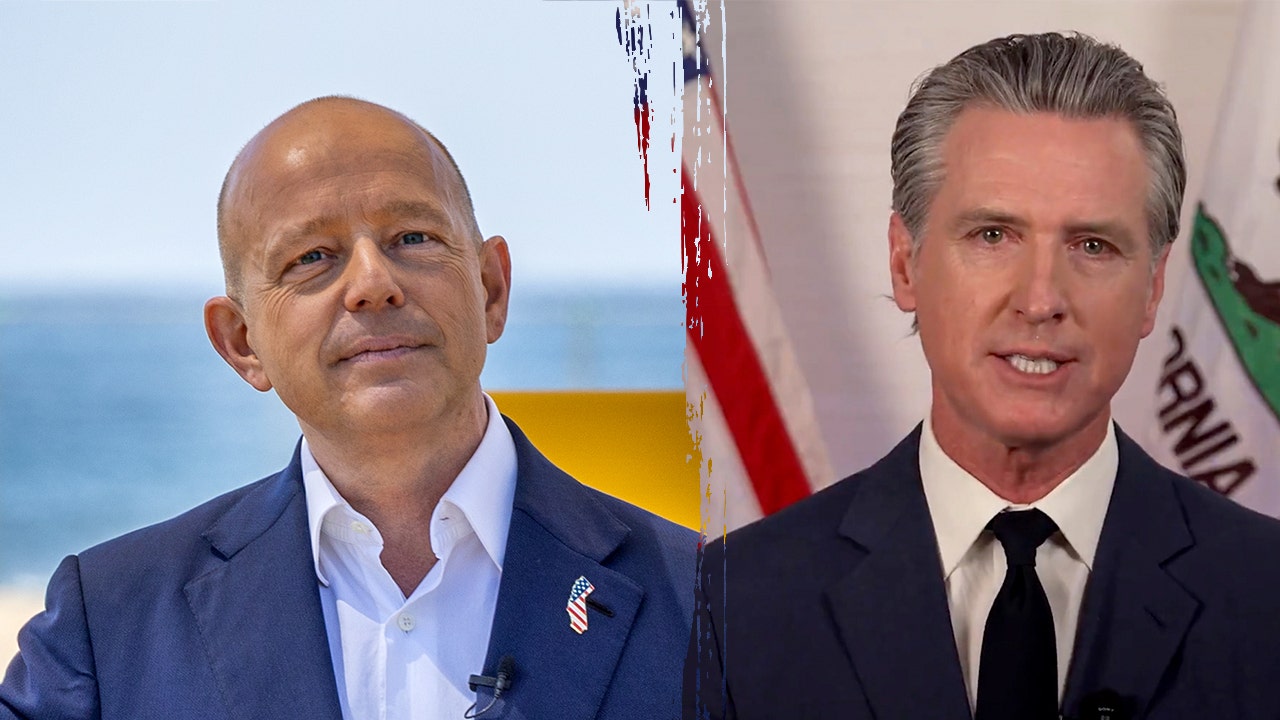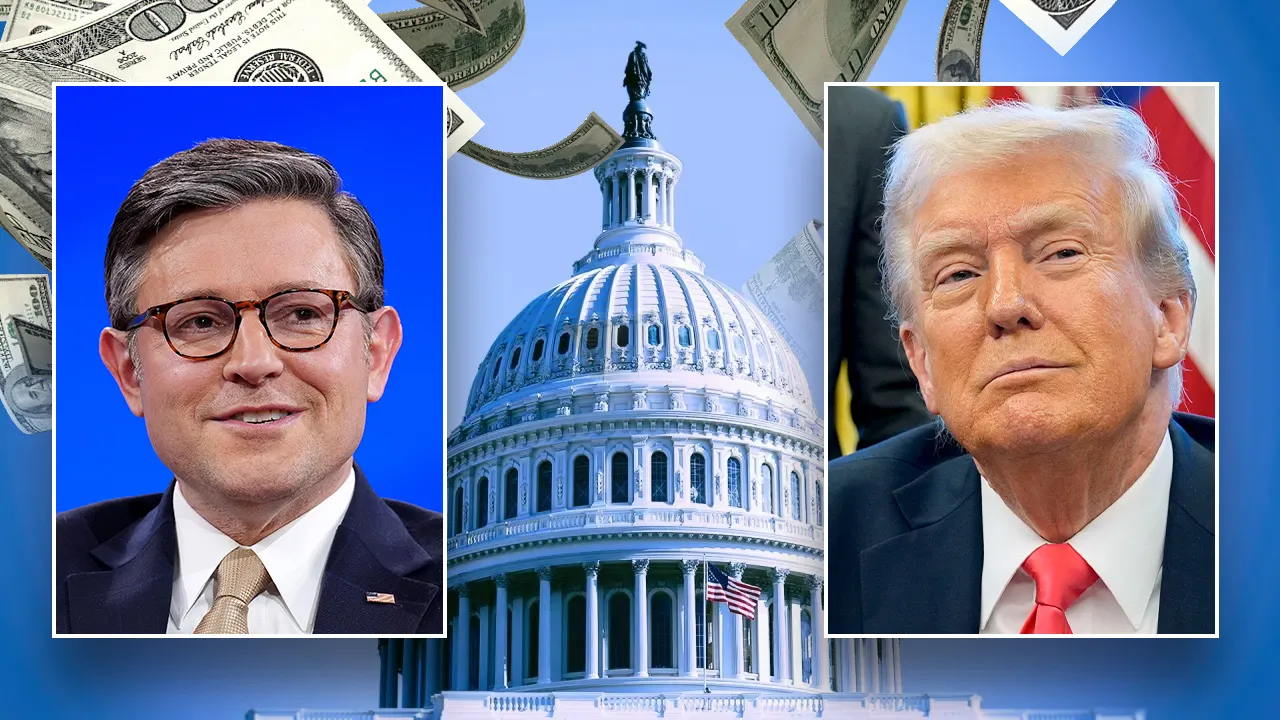Pennsylvania
Pennsylvania sheriff rips ‘weak’ Bob Casey’s record on fentanyl in scathing new McCormick ad: ‘My son would be alive today’

Republican Senate candidate Dave McCormick is taking aim at his Democratic opponent and tugging at Pennsylvania’s heartstrings in a new campaign ad showing the impact of fentanyl — and the open border policies that allow it to flow freely — on American families.
In the 30-second spot, Blair County Sheriff Jim Ott speaks solemnly into the camera, sharing his experience with fentanyl, not only as an officer of the law, but also as a bereaved father.
“Three high schoolers die from fentanyl every day. As a sheriff, I see it. As a father, it happened to me,” Ott said, while a piano played softly in the background.
Then comes the attack.
“If the border was secure, chances are my son would be alive today,” Ott continued.
“We can’t bring back the people we’ve lost. But we can get rid of the weak politicians like Bob Casey who let it happen.”
Fentanyl killed 4,000 Pennsylvanians last year, and the McCormick campaign hopes to pin the drug epidemic and its death toll on Casey, a three-term incumbent who is leading in the polls.
Record-breaking illegal immigration at the U.S.-Mexico border under the Biden administration has fueled GOP messaging, which highlights the role of lax border security as a culprit for fentanyl deaths.
The Ott ad is the latest shot fired in the Casey-McCormick race, a hotly contested battle in a major swing state where ad spending is predicted to break records this cycle.
In July, Casey attacked McCormick, who was CEO of Bridgewater Associates when the company held a $1.7 million stake in China’s largest synthetic opiate manufacturer. McCormick fired back, calling Casey the “ultimate liar and hypocrite” when it turned out the senator holds a three-cent stake in the same company in his personal stock portfolio.
Now the fentanyl blame game has reached the southern border.
Last week, a PAC supporting McCormick ran an ad with the Beaver County sheriff tying “Casey’s open border policy” to fentanyl, drug dealers, and human traffickers.
This week, there’s a new sheriff in town repping McCormick — and he’s not holding back.
“If I could talk to Senator Casey, if this happened in your family, wouldn’t you give as much as you could give? Wouldn’t you provide whatever is needed to make sure you gave the safety to try and stop it from coming into your home?” Ott said in a two-minute version of the ad.
But other advocates fighting the fentanyl crisis don’t place the blame on Casey.
Last week Casey hosted Gregory Swan, the founder of Fentanyl Fathers, at his Pittsburgh home with other families affected by the fentanyl crisis to hear their stories.
Swan’s group, which educates America’s youth about the dangers of fentanyl, featured one of its surrogates in a commercial with Casey, and defended his record on the issue.
“In terms of the FEND Off Fentanyl Act, he got that through as a federal law. So he’s no lightweight when it comes to” fentanyl, Swan told The Post.
The law he refers to sanctions the manufacture and trafficking of illicit fentanyl and its precursors by Chinese criminal organizations and Mexican cartels.
Still, Swan isn’t fully sold on Democrats’ policy solutions.
“The border is not secure. That’s an issue with us,” Swan said.
“Democrats are definitely the owners of the influx of migration, which has brought the drugs. You have a lot of people who are unvetted. It’s pouring, pouring in.”
Beyond stopping Chinese fentanyl precursors and prevention through awareness, Swan said, “You need someone with cojones to take care of the cartels.”
McCormick’s offered an aggressive solution, telling The Post: “We should identify the cartels as terrorist organizations,” and “use our military capacity,” to destroy them.”

Pennsylvania
Person caught on camera tossing dog over fence at Pennsylvania shelter identified

A person caught on camera tossing a dog several feet over a fence at the Central Pennsylvania Humane Society has been identified.
Logan Township police said 39-year-old Erin D. House of Williamsburg will be charged with animal cruelty and corruption of minors, CBS affiliate WTAJ reports.
At the end of March, the no-kill shelter in Blair County shared a video on Facebook asking for help identifying the person caught on surveillance video tossing the dog over the fence and leaving. The video had over 700,000 views.
The humane society wrote on Facebook that the suspect “TOSSED a senior Pitbull over our fence! Tossed her onto CONCRETE where she rolls down the sidewalk!!! It was probably a 5 feet drop, minimum! She spent the night outside ALONE! No food. No water. Nothing. What if she jumped the fence onto a 55mph road???”
(Photo: Central Pennsylvania Humane Society/Facebook)
Vet staff found the dog, later named Cherry, when they arrived eight hours later. The investigation revealed that Cherry recently had given birth to a puppy, which the humane society took into custody.
The shelter also learned that Cherry, who must have experienced “a pretty significant landing” after she was thrown, dislocated her hip. The injury was “causing intense pain” and she had to have surgery.
Cherry found a foster home where she could recover after her surgery, and after her foster mom fell “madly in love,” she decided to adopt Cherry, the humane society said.
Pennsylvania
Families in Norristown, Pennsylvania, speak out following wave of ICE arrests, deportations
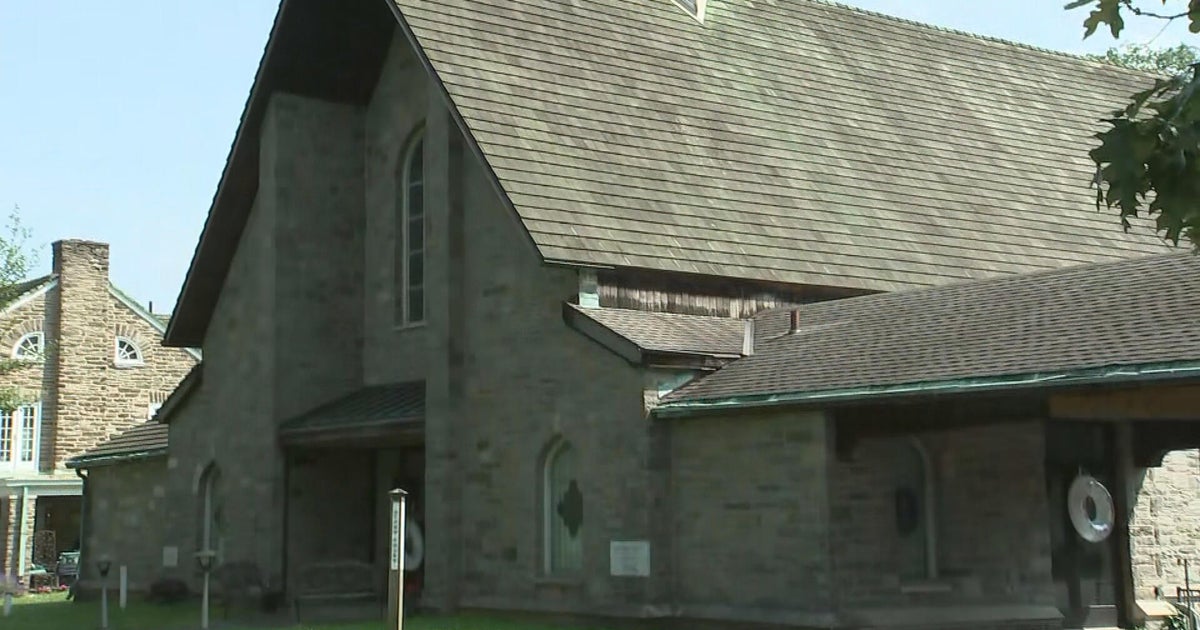
Community members and immigrant rights advocates gathered Wednesday evening at the Reformed Church of the Ascension in Norristown to share emotional stories of loved ones detained — and in some cases deported — amid what they describe as a recent wave of immigration enforcement.
Julieta Guadalupe Adán said her brother, 34-year-old Alejandro Serrano Adán, was detained by U.S. Immigration and Customs Enforcement agents on Saturday and is now back in Mexico.
“He’s never had any incident with the law,” she said through a translator. “He came here. He always had a consistent job. His main focus was to provide for his family.”
According to Guadalupe Adán, her brother came to the United States from Mexico four years ago to work as a landscaper. Though he was undocumented, she said he had no criminal record, but often gave rides to a man who she believed did.
“I’ve warned him of this,” she said. “He was somebody who, if you asked him for a ride or a favor, he would do that for anybody.”
Guadalupe Adán said she always knew deportation was a possibility, but said she’s struggling to accept how it happened.
“He was dropped off without any of his documentation — no passport, no information, no money,” she said.
Denisse Argurto, a community organizer in Montgomery County, said advocates have been tracking the number of local families affected by ICE arrests. They estimate that over 25 people have been arrested and at least five deported from Norristown since late May. CBS News Philadelphia has reached out to an ICE spokesperson for confirmation and is awaiting a response.
David McMahon, a community organizer who works with families impacted by immigration enforcement, said educating people about their rights is essential.
“People need to be informed of their rights — where they are able to actually successfully exercise them,” McMahon said. “Especially in instances where people who are most vulnerable can’t really take some actions directly, we can sort of be a public face and get word out that way.”
Over the past few weeks, volunteers like McMahon have handed out pocket-sized cards listing the legal rights of immigrants if approached by immigration officers. The cards include reminders such as the right to remain silent and the ability to refuse entry unless ICE presents a judicial warrant.
Guadalupe Adán said her family is still reeling from her brother’s sudden deportation — but she hopes speaking out will inspire others.
“We do have value. We do have our dignity,” she said. “And we demand respect — especially for our children.”
Pennsylvania
New Details on 2 Tornadoes Confirmed in Northwestern Pennsylvania During Monday’s Storms

Survey Summary:
The National Weather Service Cleveland office confirmed an EF-
2 tornado in eastern Erie County, Pennsylvania, with maximum
estimated wind speeds of 115 mph and a maximum path width of
150 yards. The tornado touched down just northwest of the
intersection of Plum Road and Page Road, with swirls in the field
and moving northeast toppling a large tree and destroying a barn
near Knoyle Rd. The tornado crossed Knoyle Road and struck a second
barn directly, which contained several vehicles and trailers. The
barn was destroyed, leaving the cars heavily damaged and a
trailer overturned. Debris from the structure was across a
nearby field and into the adjacent woods. Two horses and several
cows were killed as a result of the tornado. A nearby home
sustained moderate damage, including ripped siding from the west
side, broken windows, and a blown-out side door. The tornado
continued northeast across an open field before entering a wooded
area, where it damaged several trees. It then lifted shortly
thereafter.
-

 West6 days ago
West6 days agoBattle over Space Command HQ location heats up as lawmakers press new Air Force secretary
-

 World1 week ago
World1 week agoTwo suspected Ugandan rebels killed in Kampala explosion
-
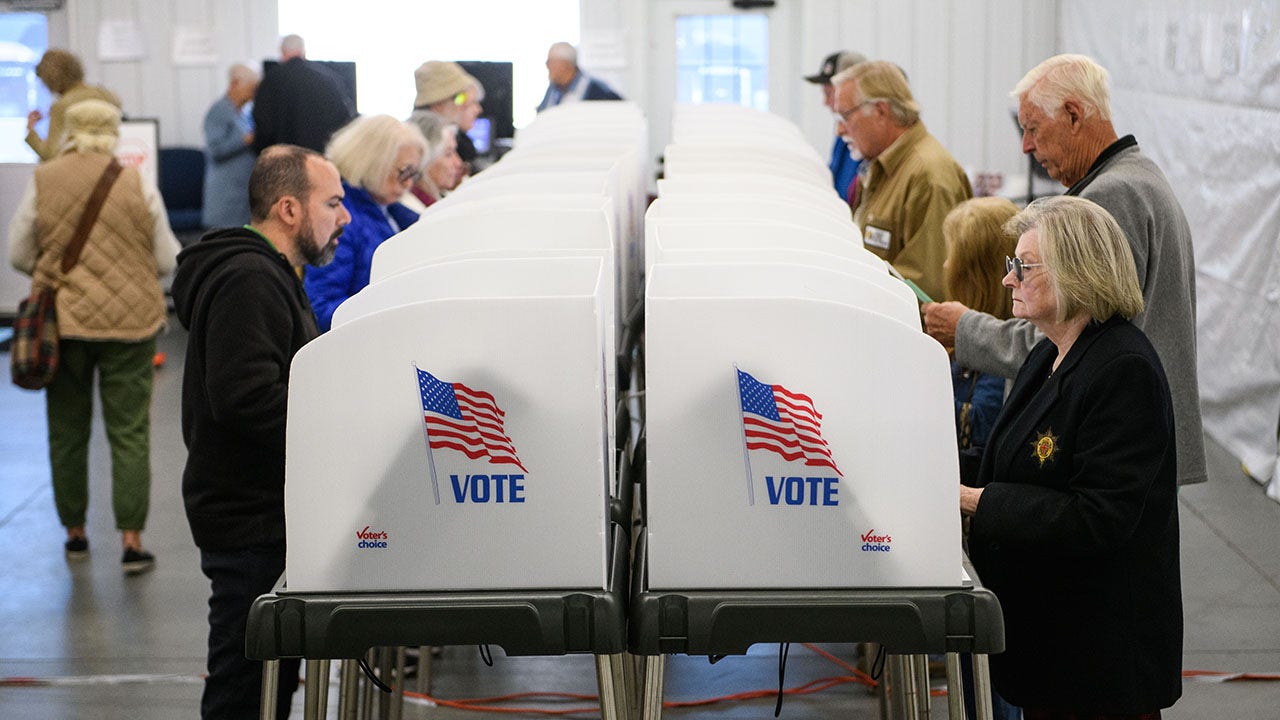
 Politics1 week ago
Politics1 week agoRed state tops annual Heritage Foundation scorecard for strongest election integrity: 'Hard to cheat'
-

 Technology7 days ago
Technology7 days agoiFixit says the Switch 2 is even harder to repair than the original
-
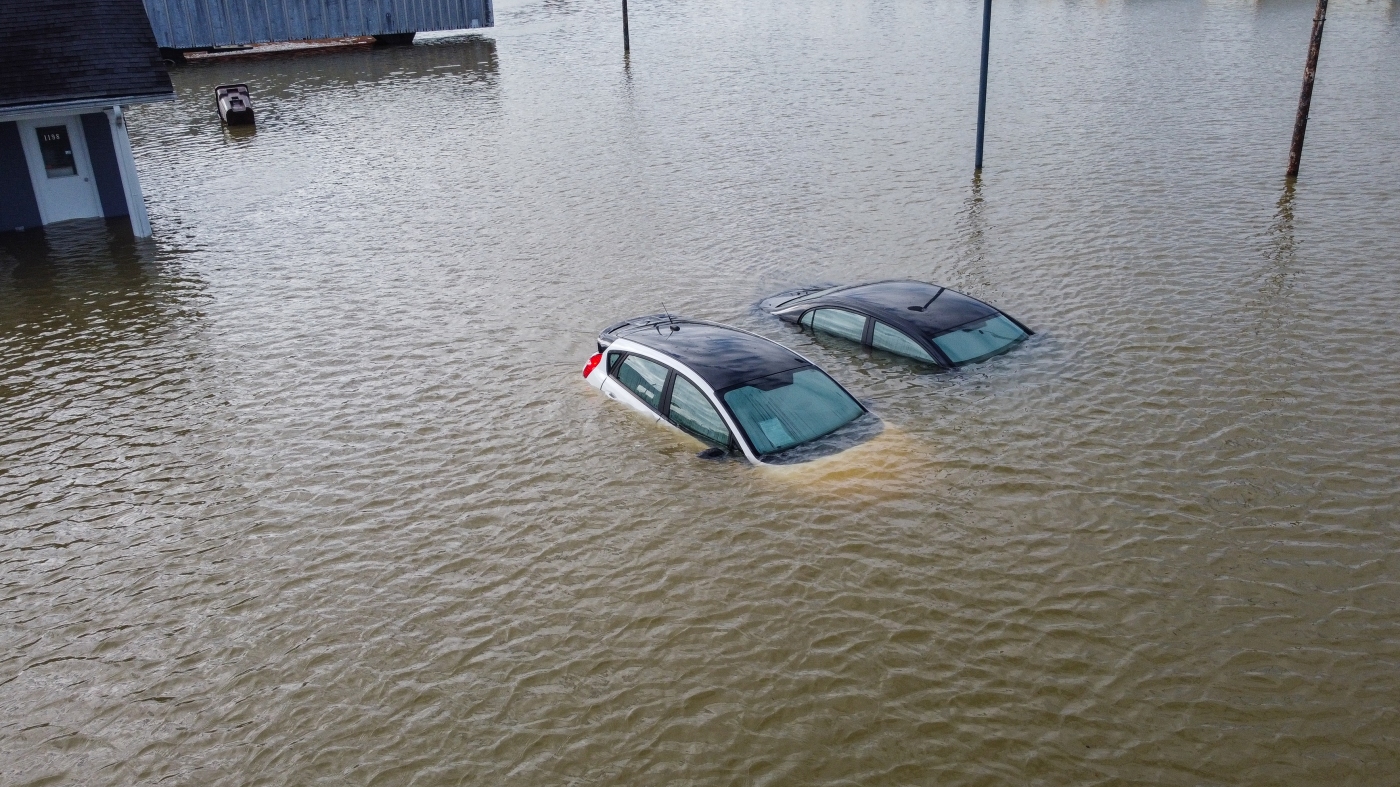
 News1 week ago
News1 week agoStabilizing 'operations,' the National Weather Service hires again after Trump cuts
-

 Movie Reviews1 week ago
Movie Reviews1 week agoStream It Or Skip It: ‘Sinners’ on VOD, Ryan Coogler's ambitious vampire epic set in the segregated South of the 1930s
-

 World1 week ago
World1 week agoEU-Ukraine trade reset: What comes after tariff-free access expires?
-
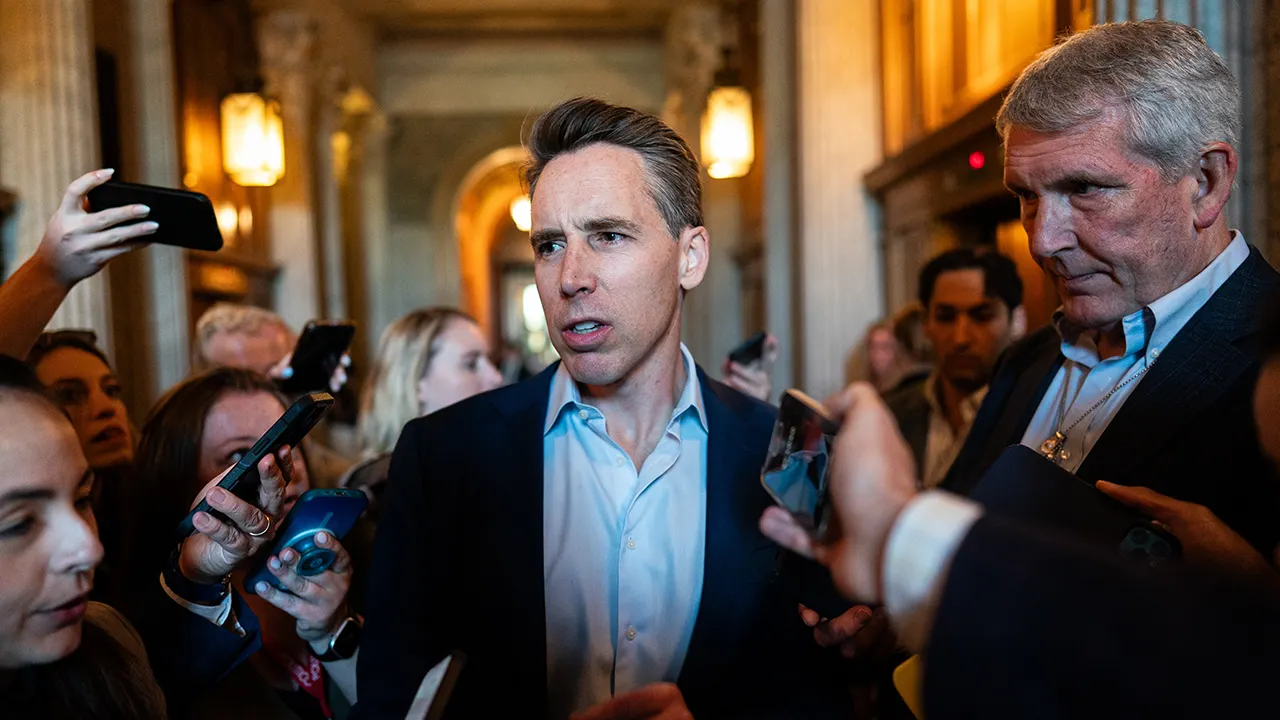
 Politics1 week ago
Politics1 week agoHawley clashes with UPenn law professor over judicial injunctions
:focal(2x204:2999x2000)/static.texastribune.org/media/files/f3fa10472cb075a4026d432b6d7537b7/0501%20Measles%20HHS%20Lab%20IPL%20TT%2035.jpg)



